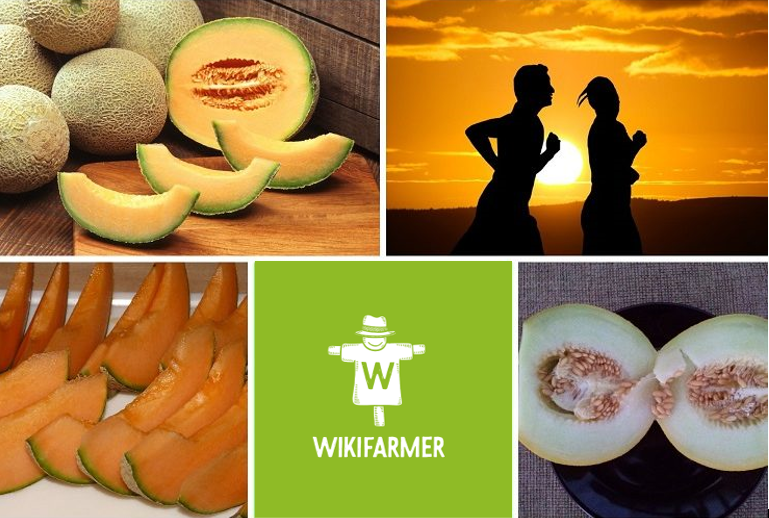Melon Health Benefits

This post is also available in:
This post is also available in:
![]() Español (Spanish)
Español (Spanish) ![]() Français (French)
Français (French) ![]() Deutsch (German)
Deutsch (German) ![]() Nederlands (Dutch)
Nederlands (Dutch) ![]() हिन्दी (Hindi)
हिन्दी (Hindi) ![]() العربية (Arabic)
العربية (Arabic) ![]() Türkçe (Turkish)
Türkçe (Turkish) ![]() 简体中文 (Chinese (Simplified))
简体中文 (Chinese (Simplified)) ![]() Русский (Russian)
Русский (Russian) ![]() Italiano (Italian)
Italiano (Italian) ![]() Ελληνικά (Greek)
Ελληνικά (Greek) ![]() Português (Portuguese (Brazil))
Português (Portuguese (Brazil)) ![]() Indonesia (Indonesian)
Indonesia (Indonesian)
There is a lot of misunderstanding when it comes to the nutritional value of melon (or muskmelon). Many people wrongly believe that melon can only offer sugar and water to the human body. Hence, it is worthless to eat it, as it will only increase our body weight and blood sugar levels. Of course, this is a myth, mainly prevailing during the previous century. During the 21st century, people have started to perceive melon as a highly nutritious food that boosts our immune system. Especially cantaloupe melon is one of the healthiest types of melons globally.
8 Amazing Health Benefits of Eating melon (cantaloupe):
- Cardiovascular Benefits
- Melon boosts immunity (stimulates the production of white blood cells)
- Improves Digestion
- Reduces Blood Pressure
- Helps in building strong bones and teeth
- Promotes Skin Health
- Protects the Eyes from Age-Related disorders
- Fights constipation
However, melons as any other food shall be consumed in normal quantities and as part of a balanced diet.
According to USDA, 100g of raw cantaloupe melon contain (among others):
- Water 90,15g
- Energy 34kcal
- Protein 0,84g
- Total lipid (fat) 0,19g
- Cholesterol 0
- Carbohydrate 8,16g
- Sugars total 7,86g
- Fiber, total dietary 0,9g
- Calcium 9mg
- Magnesium 12mg
- Potassium 267mg
- Sodium 16mg
- Phosphorus 15mg
- Vitamin C, total ascorbic acid 36,7mg
- Vitamin A 3382 IU
- Vitamin B-6 0,072mg
- Vitamin K 2,5μg
- Niacin 0,734mg
Carotenoids
Melon contains a wide variety of carotenoids, which act as antioxidants. One of the Antioxidants many roles is to protect cells from free radicals, which are linked with serious diseases, such as cancer.
Vitamin A
Cantaloupe melons contain Vitamin A in the form of b-carotene. In fact, one cup (156gr) of cantaloupe provides us approximately more than 100% of a daily vitamin A needs. This vitamin contributes to better eyesight and strengthens the immune system, among other great benefits. All these apply only for cantaloupe melon and not honeydew melon.
Vitamins of the complex B
Melon contains vitamins of complex B, such as B6. B6 participates in brain neurotransmitters synthesis, such as serotonin, melatonin and dopamine, which are known to help with anxiety and fear
Vitamin C and K, Calcium
Melon is a great source of Vitamin C and Vitamin K, while it also contains Calcium. Vitamin C promotes skin health and boosts our immune system. Calcium, Vitamin C and K are also vital for building strong bones. However, Honeydew melons contain approximately 50% of the Vitamin C that Cantaloupe melons contain.
Potassium
Melon is a great source of Potassium, which has been found to help lowering blood pressure levels.
Fiber
Melon is a great source of dietary fiber. Dietary fiber boosts the good functioning of the digestive system and control cholesterol levels.
Carbohydrates and Fat
The carbohydrate content in melon is close to 8,16g per 100g. From these, 7,86g are sugars like glucose, fructose and saccharose. 100g of cantaloupe contains less than 0.2g of fat, making it a perfect food for losing weight.
Technically, the word melon refers to any member of the family of Cucurbitaceae, however, most people with the term melon refer specifically to Cucumis melo.








































































